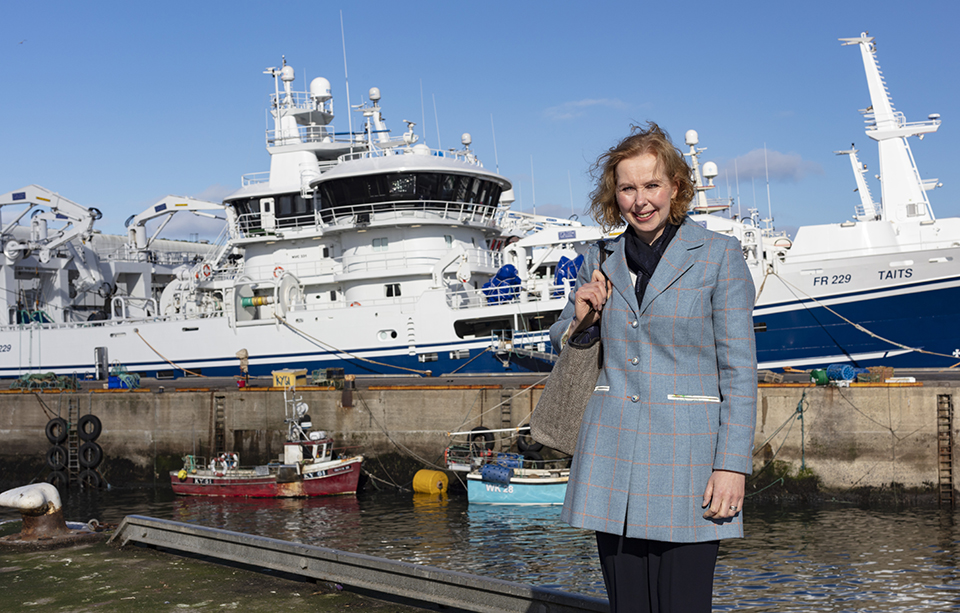Elspeth Macdonald, chief executive of the SFF, said: “Today’s announcement by Scottish Government will be devastating news for those who make their living fishing in the Clyde and have limited or no other options during the period of closure.
“SFF fully supports fishing sustainably, and clearly conservation measures taken to recover fish stocks are an important part of sustainable fisheries management. For several years we have been constructively engaged with Scottish Government on interactions between fisheries and marine conservation, and there are good examples where this approach has served all parties well and has driven the desired outcomes. While we may not always agree, we have always been able to have mature, rational discussion and there has been a clear and logical process that has been followed in reaching decisions.
“Scottish Government’s botched handling of this specific issue has served only to undermine our trust in that process – no engagement since a short ‘routine’ consultation late last year, no subsequent discussion, no evidence presented to justify this course of action, and no warning of this change that will impact on many fishing businesses.
“Fishermen within the memberships of SFF’s constituent associations will be less affected by this particular case than those who rely on the Clyde for their primary fishing grounds. We are however very concerned by the Scottish Government’s apparent willingness to disregard due process, undermine constructive relationships and make decisions affecting lives and livelihoods without presenting any evidence as to why this is either necessary or beneficial.
“We are very concerned that this decision by Scottish Government – a government now driven by its cooperation agreement with the Scottish Greens – sets a dangerous precedent for how they intend to approach fisheries mnagement and marine conservation. The decision taken about the Clyde renders laughable any claims by the Scottish Government about them taking a co-management approach to fisheries management.”
Scottish Government Announcment
Measures to protect spawning cod in the Firth of Clyde for the past 20 years will continue in 2022 and 2023, through the seasonal closure (between 14 February and 30 April) of the area to fishers.
Since its introduction, the Scottish Statutory Instrument (SSI) for the annual closure of the spawning ground has included exemptions to allow Nephrops trawlers, creels and scallop dredgers to continue to use the area, due to the low numbers of cod that they catch. However, despite the ongoing seasonal closure, the stock has shown little sign of recovery so the Scottish Government has removed these exemptions to maximise numbers.
During spawning, cod are extremely vulnerable to any activity impacting the seabed as fish are very territorial and unwilling to leave their mating areas (leks) and, as a result, are less likely to try and evade oncoming fishing gear. In addition, limiting physical disturbance during the spawning period will minimise disruption to the spawning environment and harness cod reproduction.
Removal of the exemptions will also create consistency with management in other areas, including the UK National North Sea Cod Avoidance Plan, which covers closure areas for all gear types (excluding pelagic), and the recent emergency Marine Protected Area (MPA) designation in the Inner Sound and related Marine Conservation Order, which includes prohibition on creeling and diving in order to protect the critically endangered flapper skate nursery area.
This represents a change to our previous position – for sound environmental and biodiversity reasons. It will have a short-term impact on local fishers given that the full closure of the fishery is for 11 weeks, but by taking action now, we hope to see the stock replenish which will ultimately be beneficial for fishing interests.
This change to the seasonal closure aligns with the commitments in the policy programme of the Bute House Agreement between the Scottish Government and the Scottish Greens and our shared aim to restore marine habitats in Scotland’s inshore waters. We believe that this measure will provide a higher chance of stock recovery and contribute to a more sustainable fishery in the West of Scotland in the medium-longer term.


Recent Comments